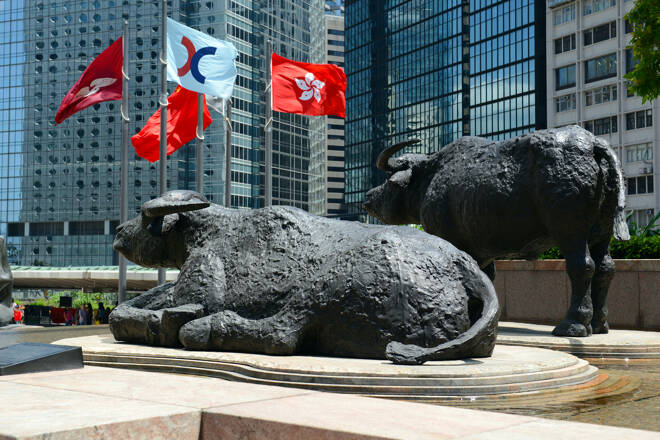Advertisement
Advertisement
Indices Forecast 2023 – FTSE, Nikkei, DAX, and Hang Seng
By:
Expect range-bound dynamics for the FTSE 100 due to the UK's economic problems and rising rates, while the Nikkei 225's performance will depend on Japan's central bank policy. On the other hand, the Hang Seng has the potential to gain strong upside momentum as China's economy rebounds after coronavirus restrictions.
Key Insights
- FTSE 100 settled near the strong resistance area, which limits its chances for a strong move in 2023.
- Nikkei 225 dynamics will depend on Japan’s central bank policy.
- Hang Seng has the potential to gain strong upside momentum as China’s economy rebounds after several years of coronavirus restrictions.
DAX 40
Germany’s main index managed to rebound from October lows as European natural gas prices pulled back from highs. DAX showed a decent performance in 2022 given the magnitude of problems faced by Germany’s economy.
It remains to be seen whether DAX will be able to gain sustainable upside momentum in 2023. Most likely, DAX will face significant resistance in the 15000 – 16000 area. Germany’s economy will face higher energy prices for years to come, which will put pressure on companies’ profitability.
FTSE 100
FTSE settled near the key resistance in the 7600 – 7900 area. The highs near 7900 were reached back in 2018, and FTSE failed to gain sufficient upside momentum to get above this level during the last five years.
At this point, it looks that the problems of the UK economy and rising rates may lead to range-bound dynamics for FTSE in 2023. FTSE will need strong catalysts to get to the test of the 8000 level, and it remains to be seen whether such catalysts will be present in 2023.
Nikkei 225
In Japan, central bank’s policy will be the key driver for the local stock market. The BoJ has recently widened its yielve control, and the yield of 10-year UK government bonds has settled in the 0.40% – 0.50% area, compared to the previous levels near 0.25%.
Higher yields are bearish for stocks, but the BoJ is still not ready to raise the interest rate, which remains in the negative territory. If the BoJ delivers a rate hike in 2023, Nikkei may find itself under significant pressure.
Hang Seng
In the last two months of the year, Chinese stocks have started to recover after the huge pullback that was caused by the slowdown of China’s economy.
China has started to reopen after several years of strict zero-COVID policy. While the abrupt exit from the previous policy has already led to record infections, the situation will likely stabilize in the first months of this year. In this scenario, China’s economy will gain strong momentum, which will be bullish for Chinese stocks.
Regulatory activity and rising tensions with the U.S. remain the key risks for Chinese stocks in 2023. China’s leadership is focused on stimulating growth after the coronavirus pandemic, so regulators will likely be less strict this year, which should provide additional support to Hang Seng index.
For a look at all of today’s economic events, check out our economic calendar.
About the Author
Vladimir Zernovauthor
Vladimir is an independent trader, with over 18 years of experience in the financial markets. His expertise spans a wide range of instruments like stocks, futures, forex, indices, and commodities, forecasting both long-term and short-term market movements.
Advertisement
